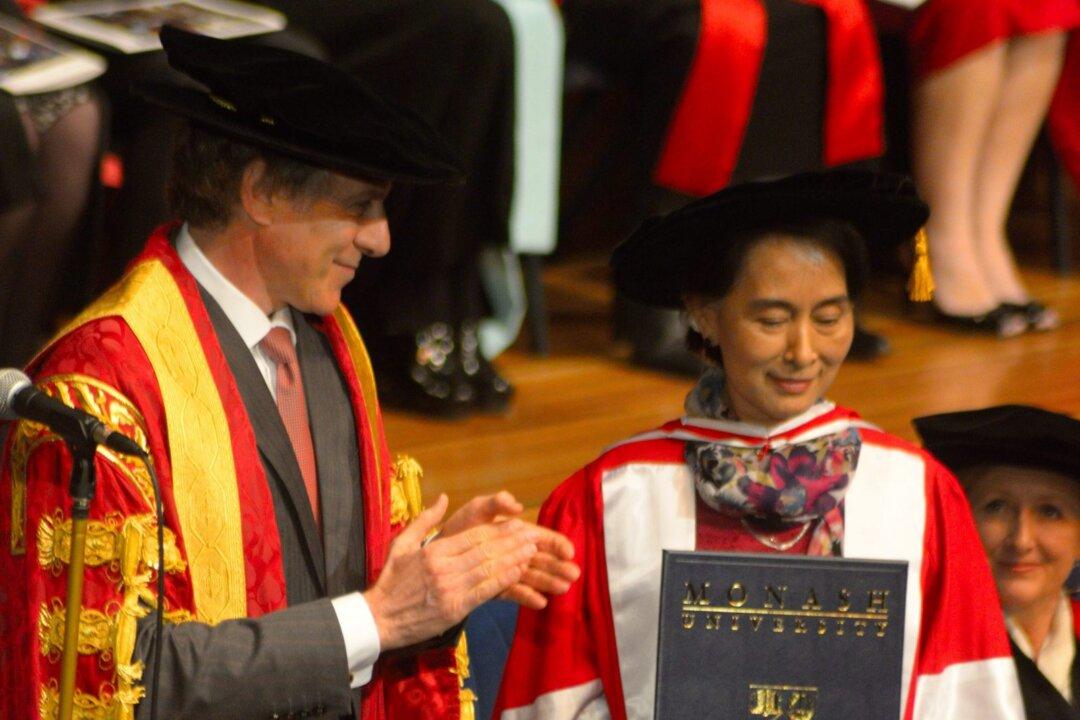MELBOURNE—Burmese activist, Aung San Suu Kyi, has acknowledged the difficulties her country faces in embracing democracy but said she believes Australia can help her country build a bright future.
Ms Suu Kyi said Burma (also known as Myanmar) is “the golden hope for the future”, while speaking at a packed event in Blackwood Hall at Monash University’s Clayton Campus on Nov 30.
On her first ever trip to Australia, the Nobel Peace Prize winner was given a standing ovation as she received two honours – an honorary degree of Doctor of Laws from Monash University and the Desmond Tutu Fellowship award from Global Reconciliation, a non-government organisation based at Monash.
Ms Suu Kyi said she was “very privileged” to come to Australia, and though it was not the first honorary degree she had received, said it was “one that I will treasure”.
Members of the local Burmese community came in their diverse ethnic traditional dress to greet the iconic democracy activist. Ms Suu Kyi has received more than 130 awards and honours internationally including the Nobel Peace Prize in 1991. After 15 years under house arrest for her democracy and human rights activism she was released in November 2010 and was elected to the Burmese Parliament.
Forgive to Move On
In her graduation address “Reconcilliation and the Rule of Law”, Ms Suu Kyi said that on the path for democracy in Burma it was important not to be “shackled by the past”.
“I do not want us to be prisoners of the past and I believe our ethnic nationalities share the desire to break out of the prison of the past; for this we have to forgive, not forget.”
She explained that it is difficult for the Burmese people to understand a democratic society in which the rule of law is a rule of just laws, not repressive ones. She said just laws are necessary “for equal access to justice and equal access to protection”.
Ms Suu Kyi said she spoke with Burmese students at the Australian National University in Canberra and asked what they had learnt since living in Australia. One of them said, “to ask questions”.
“Because he grew up under the military regime throughout his education in Burma, he was never allowed to ask questions,” Ms Suu Kyi explained.
She said Australia, as a key democratic country in Asia, could do much to help other countries develop freer societies.
“There is no other country quite like Australia which is rooted in western values and western traditions and yet which is situated in the east. More eastern people are coming and enriching the diversity,” she said.
“You have already got much more than some of us could ever dream of achieving in our lifetime...we need your help and support.”
Presenting the Desmond Tutu Award on behalf of Global Reconciliation, Professor Komesaroff said, “Daw Aung Suu Kyi is a role model for people everywhere who aspire to a life of moral courage and public service.”
The award is in recognition of Ms Suu Kyi’s outstanding global contribution to promote dialogue and understanding across national, cultural, religious and racial differences.




